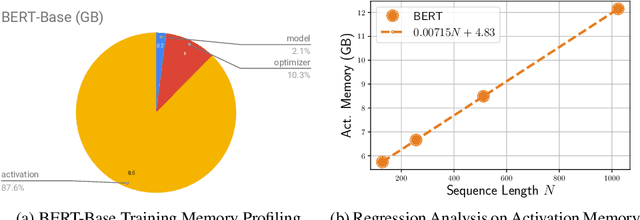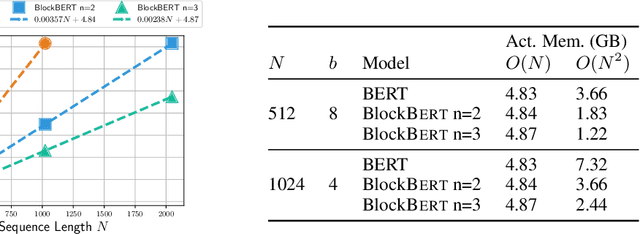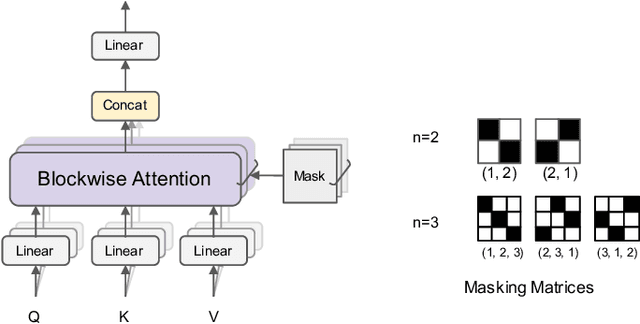Blockwise Self-Attention for Long Document Understanding
Paper and Code
Nov 07, 2019



We present BlockBERT, a lightweight and efficient BERT model that is designed to better modeling long-distance dependencies. Our model extends BERT by introducing sparse block structures into the attention matrix to reduce both memory consumption and training time, which also enables attention heads to capture either short- or long-range contextual information. We conduct experiments on several benchmark question answering datasets with various paragraph lengths. Results show that BlockBERT uses 18.7-36.1% less memory and reduces the training time by 12.0-25.1%, while having comparable and sometimes better prediction accuracy, compared to an advanced BERT-based model, RoBERTa.
View paper on
 OpenReview
OpenReview
 Add to Chrome
Add to Chrome Add to Firefox
Add to Firefox Add to Edge
Add to Edge